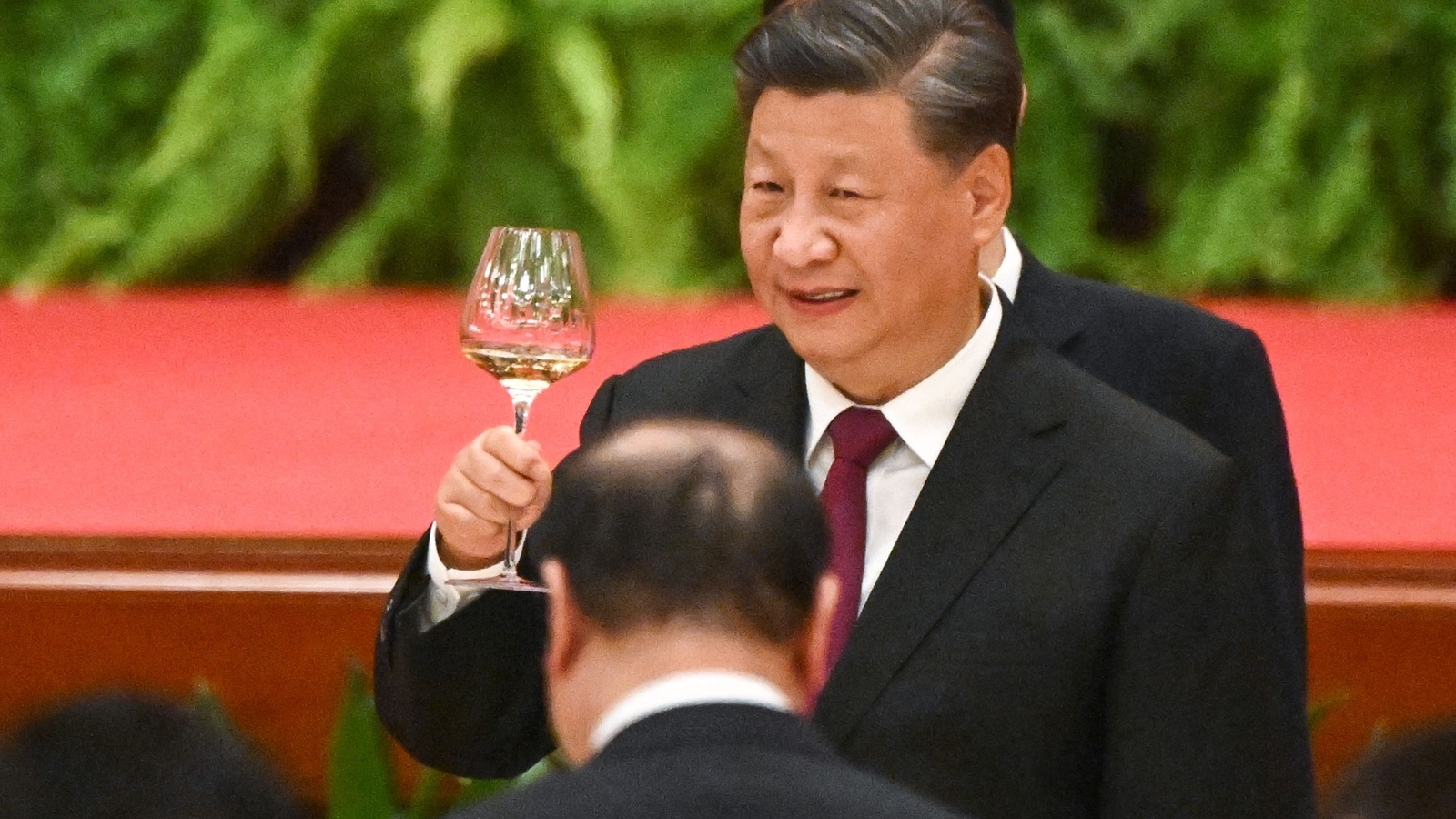 ‘Paper tiger no more’: How Xi Jinping 10 years reshaped China's navy | World News
[ad_1]
‘Paper tiger no more’: How Xi Jinping 10 years reshaped China's navy | World News
[ad_1]
In the course of Xi Jinping's 10 years-prolonged rule, China has developed the world's premier navy, revamped the globe's greatest standing military, and amassed a nuclear and ballistic arsenal to difficulty any foe.
With China's neighbours now hurrying to hold speed, Xi's following 5-calendar year phrase is probable to see a quickening Asia-Pacific arms race.
From South Korea creating a blue-drinking water navy to Australia acquiring nuclear-driven submarines, weapons purchasing has surged throughout the area.
In accordance to figures from the London-based mostly Worldwide Institute for Strategic Scientific studies, Asia-Pacific defence investing handed $1 trillion final calendar year by itself.
China, the Philippines and Vietnam have approximately doubled investing in the final 10 years. South Korea, India and Pakistan are not significantly driving.
Even Japan is proposing report defence budgets and inching in direction of ending its prolonged-standing "no initially strike" plan, citing an "more and more significant" safety setting.
"All the essential gamers in the Indo-Pacific area are responding to China's navy modernisation, fundamentally as quick as they can," explained Malcolm Davis, a previous Australian defence formal now with the Australian Strategic Coverage Institute.
Paper tiger no much more(*1*)
For several years, the People's Liberation Military was witnessed as unwell-geared up and ineffective -- disparaged by just one historian as "the world's premier navy museum".
It was kitted out with ageing Soviet-derived weaponry, riddled with corruption and was a predominantly infantry drive with a much less-than-stellar report in overseas strategies.
The PLA's participation in the Korean War charge virtually two hundred,000 Chinese life. A 1979 invasion of Vietnam charge tens of hundreds much more and has been generally airbrushed from formal histories.
Go through much more: (*1*)Convoy transporting tools for Russia's nuclear forces on the shift: Report(*1*)
When Xi grew to become commander-in-main of the PLA in 2013, some reforms were being by now below way.
They started in the nineteen nineties, when Jiang Zemin was stunned and awed into motion by US navy prowess throughout the Gulf War and the 3rd Taiwan Strait Disaster.
But "it was not genuinely till Xi Jinping arrived in that that energy began translating to capacity", strategic advisor Alexander Neill instructed AFP.
The PLA experienced then just introduced its initially plane provider, the Liaoning -- a refurbished Ukrainian ship -- and the J-fifteen multi-position fighter plane, based mostly on a Sukhoi prototype.
Beijing's navy spending budget has now elevated for 27 consecutive several years, in accordance to the Stockholm Worldwide Peace Investigation Institute.
'Only competitor'(*1*)
Nowadays, China features two energetic plane carriers, hundreds of prolonged- and intermediate-array ballistic missiles, hundreds of warplanes and a navy surpassing even the United States's.
Following China introduced a temporary and partial blockade of Taiwan in August, a top rated US navy officer tacitly conceded that stopping the true point would not be straightforward, even for Washington.
"They have a incredibly big navy, and if they want to bully and set ships close to Taiwan, they incredibly considerably can do that," Seventh Fleet commander Karl Thomas instructed US media.
In the meantime, China's nuclear stockpile is rising exponentially and -- in accordance to the Pentagon -- can possibly now be introduced from land, sea and air, echoing the US nuclear triad.
In accordance to the Bulletin of the Atomic Experts, China has about 350 nuclear warheads, double the quantity held throughout the Chilly War.
US intelligence predicts that this stockpile could double yet again to seven-hundred by 2027. New nuclear missile silos are currently being developed in the northwest of the region.
Washington has pulled no punches in describing the scale of may and ambition held by the People's Republic of China.
"The PRC is the only competitor able of combining its financial, diplomatic, navy, and technological electricity to mount a sustained problem to a steady and open up worldwide technique," a Pentagon report final calendar year explained.
"Beijing seeks to reshape the worldwide purchase to much better align with its authoritarian technique and countrywide pursuits."
As considerably as any components, it is this perceived worldwide intent that has spooked China's neighbours.
Xi's 'huge favour' (*1*)
A lot of of the huge-ticket navy tasks close to the area plainly have deterrence in head -- no matter if it is thwarting the "tiny blue adult men" of Beijing's naval militias or a regular assault.
South Korea programs to acquire naval electricity able of running significantly from coastal waters, which gurus say has tiny to do with the danger from speedily arming North Korea.
Australia programs to purchase 8 nuclear submarines -- which can keep underwater for prolonged durations and start retaliatory strikes -- with British and American aid, portion of the so-identified as AUKUS arrangement.
There is also dialogue in Canberra about getting hypersonic weapons, for a longer time-array ballistic missiles and even condition-of-the-artwork B-21 stealth bombers, able of placing everywhere in the world practically undetected.
For Davis, all of these tasks place to a realisation that China more and more has the electricity to form the area to its will.
"The times of the US Navy dominating the seas in the Western Pacific are quick approaching an conclusion," he explained, and Asia-Pacific allies are beefing up their possess defences appropriately.
"We would not have experienced AUKUS if it was not for Xi Jinping. He is completed us a enormous favour in that perception."
[ad_2]


No comments:
Post a Comment